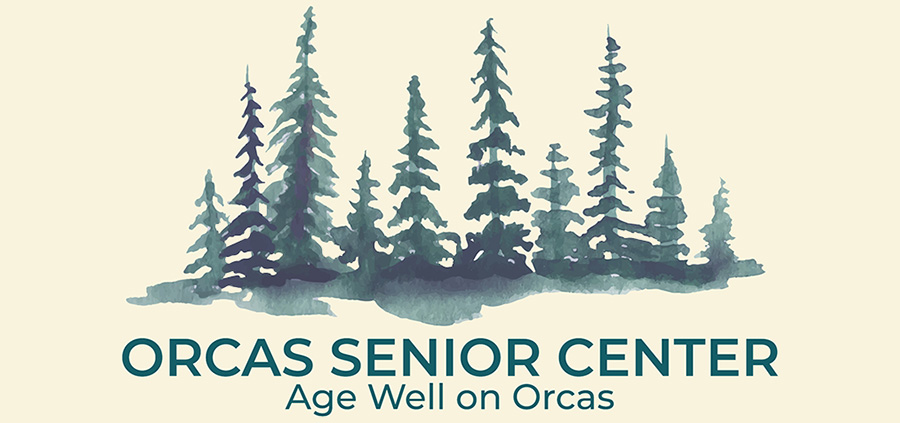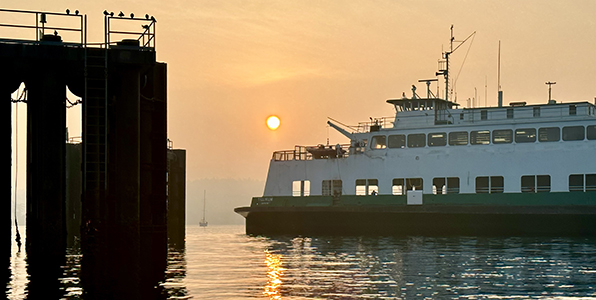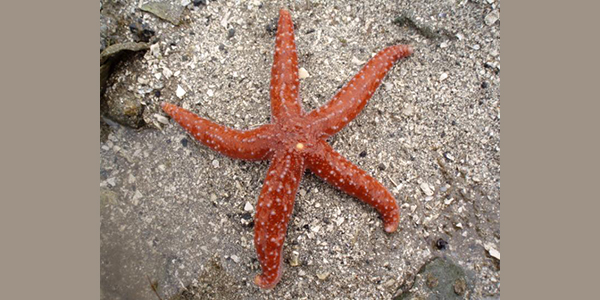Shellfish Growers and Marine Scientists Agree that Ocean Degradation is Fact, Not Theory; Collaboration and Adaptation Key Next Steps
— from Julia Vouri —
Ocean acidification is fact, not theory, and collaboration and adaptation are key to tackling this crisis. That was the conclusion of local shellfish growers, marine managers and scientists who gathered September 10 in Friday Harbor, Washington.
Convened by the San Juan Marine Resources Committee, with support from the Northwest Straights Initiative, Puget Sound Partnership and Charlotte Martin Foundation, the shellfish growers and marine managers met all day to discuss changing ocean conditions and how they impact local shellfish growing and marine management.
The sobering truth is that anthropogenic carbon dioxide—carbon dioxide caused by human activities such as burning fossil fuels—is changing the chemistry of the ocean. The effects of positive changes we make today won’t be seen for the next 30 to 50 years, because pollution in ocean waters circulates for decades.
Because of this “…things will get worse before they get better, so we have to learn to adapt,” said Bill Dewey, public affairs manager for Taylor Shellfish Farm, who started noticing changes in his shellfish in 2005.
Increasing acidity in ocean water results in shells that are thinned, pitted and not properly formed, Dewey said. One-third of all the species in the Salish Sea are animals that make shells out of calcium carbonate, making our local waters, and the shellfish farming industry, particularly vulnerable. Dewey posited that success would be gained in part through diligent monitoring.
Recognizing the problem through data collection is only part of the solution, according to Dr. Joel Baker, director of the University of Washington Puget Sound Institute Center for Urban Waters. “Analyzing (the data) requires a tremendous amount of time and ongoing collaboration with colleagues,” he said. He also stressed the importance of being realistic about what’s happening, and facing it head on.
All of the workshop leaders agreed that solutions begin with knowledge and education. Dr. Jan Newton, Co-director of the Washington Ocean Acidification Center, singled out and praised the work of young, enthusiastic graduate students.
“Let’s arm ourselves with information and educate the next generation,” said Dr. Newton. “We need to be ambassadors for the oceans.”
“It’s within our power to make positive changes,” said Dr. Terrie Klinger, Co-director of the Washington Ocean Acidification Center. “We here in the San Juan Islands and Washington State have a great responsibility not to fail. We can make a difference.”
There is still much research to be done about ocean acidification, which is affecting us globally as well as locally. It impacts not just our shellfish, but any organism that needs calcium carbonate to build any part of its body structure. For more information about ongoing efforts and to learn what you can do, go to https://coenv.washington.edu/research/major-initiatives/ocean-acidification/, https://www.nanoos.org, or https://pmel.noaa.gov/co2/story/Ocean+Acidification.
In addition, the San Juan Marine Resources Committee (https://www.sjcmrc.org) expects to post the lecture presentations from the workshop to their web site within the next month.
**If you are reading theOrcasonian for free, thank your fellow islanders. If you would like to support theOrcasonian CLICK HERE to set your modestly-priced, voluntary subscription. Otherwise, no worries; we’re happy to share with you.**








Cliff Mass presents some interesting thoughts on this:
https://cliffmass.blogspot.com/2013/10/ocean-acidification-and-northwest.html
Brian, I saw Cliff’s blog post, and also went to the climate talk on Ocean Acidification. I found the Ocean Acidification talk compelling, and worth paying attention to.
I went to a talk Cliff Mass gave on climate change, at the Orcas Center, and was unimpressed. He almost seemed to be soft-pedaling it. He was citing data that was old or out of touch with the state of the art. He is a wonderful “weatherman”, but on climate change – not so much.
When he chose to talk authoritatively about ocean acidification in his blog post, it surprised me, since he is not an ocean chemist. And the views he expressed run counter to the state of the art research being done in the field.
For those interested, the Friday Harbor talk was video taped, and will be available on-line, and I encourage folks to check out the link in the article above to deepen understanding.
Every other breath we breath comes from the oceans. They have, to a point, absorbed much of the CO2 we spew into the atmosphere. But the Earth’s oceans are becoming saturated and acidified in the process. The ocean’s can only take so much. Our Salish Sea is being stressed and we should err on the side of care, restoration and leaving it, and our world, better than we found it.
If you are interested in learning more about ocean acidification from shellfish growers that are experiencing it firsthand, as well as from one of highest regarded scientists studying this phenomenon, check out the video of the recent Ocean Acidification talk in Friday Harbor by Dr. Jan Newton. Jan’s talk starts at about 8 minutes into the video.
https://www.youtube.com/watch?v=E4LJLzaJVFg&list=UUvtaFbkusMqG8gFhUa3d0HA
“The effects of positive changes we make today won’t be seen for the next 30 to 50 years,..” I happen to believe this is more true than false. At least we are seeing more notes on our environmental crisis in everyday outlets. Cliff Mass despises the fault-ridden reporting logic (granted, in general), but this is one subject that cannot get too much common publicity.